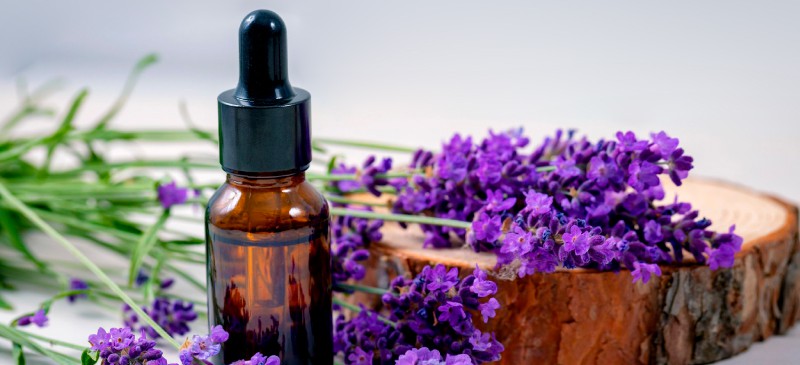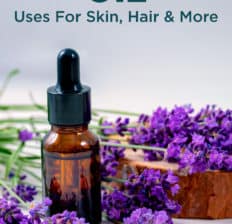This Dr. Axe content is medically reviewed or fact checked to ensure factually accurate information.
With strict editorial sourcing guidelines, we only link to academic research institutions, reputable media sites and, when research is available, medically peer-reviewed studies. Note that the numbers in parentheses (1, 2, etc.) are clickable links to these studies.
The information in our articles is NOT intended to replace a one-on-one relationship with a qualified health care professional and is not intended as medical advice.
This article is based on scientific evidence, written by experts and fact checked by our trained editorial staff. Note that the numbers in parentheses (1, 2, etc.) are clickable links to medically peer-reviewed studies.
Our team includes licensed nutritionists and dietitians, certified health education specialists, as well as certified strength and conditioning specialists, personal trainers and corrective exercise specialists. Our team aims to be not only thorough with its research, but also objective and unbiased.
The information in our articles is NOT intended to replace a one-on-one relationship with a qualified health care professional and is not intended as medical advice.
10 Lavender Oil Benefits for Major Diseases and Minor Ailments
December 3, 2022

Lavender essential oil is the most used essential oil in the world today, but the benefits of lavender were actually discovered over 2,500 years ago. Because of its powerful antioxidant, antimicrobial, sedative, calming and antidepressive properties, lavender oil perks abound, and it’s been used both cosmetically and therapeutically for centuries.
The Egyptians used lavender for mummification and as a perfume. In fact, when King Tut’s tomb was opened in 1923, there was said to be a faint scent of lavender that could still be detected after 3,000 years.
Early and modern aromatherapy texts advocate for lavender’s use as an antibacterial essential oil. The leaves and stems of the plant were used to prepare decoctions against digestive system diseases and rheumatism, and lavender was valued for its cosmetic purposes.
Research shows that the Romans used lavender oil for bathing, cooking and purifying the air. In the Bible, lavender oil was among the aromatics used for anointing and healing.
Because lavender oil contains such versatile properties and is gentle enough to use directly to the skin, it’s consider a must-have oil, especially if you are just getting started with using essential oils for your health. Science has only recently started to evaluate the range of health effects that lavender essential oil contains, but there’s already an abundance of evidence that points out the amazing capabilities of this oil.
Today, lavender is one of the most popular essential oils in the world — and for good reason. People are beginning to catch on to lavender oil benefits for your body as well as your home.
Lavender Oil Benefits
1. Antioxidant Protection
Free radicals, like toxins, chemicals and pollutants, are arguably the most dangerous and most common risk factor for every disease that affects Americans today. Free radicals are responsible for shutting down your immune system and can cause unbelievable damage to your body.
The body’s natural response to free radical damage is to create antioxidant enzymes — especially glutathione, catalase and superoxide dismutase (SOD) — that stop these free radicals from doing their damage. Unfortunately, your body can actually become deficient in antioxidants if the free radical burden is great enough, which has become relatively common in the U.S. because of poor diet and high exposure to toxins.
Thankfully, lavender is a natural antioxidant that works to prevent and reverse disease. A 2013 study published in Phytomedicine found that it increased the activity of the body’s most powerful antioxidants — glutathione, catalase and SOD. More recent studies have indicated similar results, concluding that lavender has antioxidant activity and helps prevent or reverse oxidative stress.
2. Helps Treat Diabetes
In 2014, scientists from Tunisia set out to complete a fascinating task: to test the effects of lavender on blood sugar to see if it can help reverse diabetes naturally.
During the 15-day animal study, the results observed by researchers were absolutely amazing. In a nutshell, lavender essential oil treatment protected the body from the following diabetes symptoms:
- Increased blood glucose (the hallmark of diabetes)
- Metabolic disorders (especially fat metabolism)
- Weight gain
- Liver and kidney antioxidant depletion
- Liver and kidney dysfunction
- Liver and kidney lipoperoxidation (when free radicals “steal” necessary fat molecules from cell membranes)
Although more research is needed to understand the full capacity of lavender for the prevention or reversal of diabetes, the results of this study are promising and indicate the therapeutic potential of the plant extract. To use it for diabetes, use it topically on your neck and chest, diffuse it at home, or supplement with it.
3. Improves Mood and Reduces Stress
In recent years, lavender oil has been put on a pedestal for its unique ability to protect against neurological damage. Traditionally, lavender has been used to treat neurological issues like migraines, stress, anxiety and depression, so it’s exciting to see that the research is finally catching up to history.
There are several studies showing the plant’s effects on stress and anxiety levels. A study from 2019 found that inhaling Lavandula is one of the most powerful anxiolytic oils, as it reduces peri-operative anxiety and can be considered a potential sedative for patients undergoing surgical procedures and anesthesia.
In 2013, an evidence-based study published by the International Journal of Psychiatry in Clinical Practice found that supplementing with 80-milligram capsules of lavender essential oil help alleviate anxiety, sleep disturbance and depression. Additionally, in the study there were no adverse side effects, drug interactions or withdrawal symptoms from using lavender oil.
The International Journal of Neuropsychopharmacology published a human study in 2014 that revealed that Silexan (otherwise known as lavender oil preparation) was more effective against generalized anxiety disorder than placebos and the prescription medicine paroxetine. After treatment, the study found zero instances of withdrawal symptoms or adverse side effects.
Another study published in 2012 involved 28 high-risk postpartum women and noted that by diffusing lavender in their homes, they had a significant reduction of postnatal depression and reduced anxiety disorder after a four-week treatment plan of aromatherapy.
Lavender has also been shown to improve PTSD symptoms. Eighty milligrams of lavender oil per day helped decrease depression by 33 percent and dramatically decrease sleep disturbances, moodiness and overall health status in 47 people suffering from PTSD, as shown in a phase two trial published in Phytomedicine.
To relieve stress and improve sleep, put a diffuser by your bed, and diffuse oils while you sleep at night or in the family room while you’re reading or winding down in the evening. You can also use it topically behind your ears for similar results.
4. Supports Brain Function
The neurological benefits of lavender don’t stop at its ability to treat depression and boost mood. Research also shows that it serves as a potential natural treatment for Alzheimer’s disease.
Studies conducted on rats and mice show that inhaling the oil’s vapors can help reduce brain oxidative stress and improve cognitive impairment.
Also in 2012, the Swiss journal Molecules printed the results of an animal study suggesting that lavender is a viable treatment option for neurological dysfunctions such as stroke. Researchers believe that lavender’s neuroprotective effects are due to its antioxidant properties.
To support the nervous system with lavender oil, diffuse it at home, inhale it directly from the bottle or apply it topically to the temples and back of neck.

5. Treats Burns and Cuts
Widely known for its antimicrobial properties, for centuries lavender oil has been used to fight various infections and combat bacterial and fungal disorders. In fact, almost 100 studies have been conducted establishing this benefit of lavender over and over again.
Research shows that it speeds the healing of burns, cuts, scrapes and wounds — and a big part of this is because of its antimicrobial compounds.
A study published in Evidence-Based Complementary and Alternative Medicine evaluated how Lavandula’s antimicrobial ability is enhanced when it’s blended with other essential oils, like clove, cinnamon and tea tree oil. Researchers relayed that a 1:1 ratio of these oils was found to be the most effective in fighting against Candida albicans and Staph aureus — two common causes of many fungal and bacterial infections that lead to respiratory pneumonia and skin fungi.
A 2016 study conducted on rats found that lavender oil promoted wound healing in the early phase by accelerating the formation of granulation tissue (tissue from the healing surface of the skin) and promoting collagen synthesis. The area of wounds treated with lavender oil was significantly decreased compared to the control group.
For burn relief and to treat cuts, scrapes or wounds, mix three to five drops of lavender oil with ½ teaspoon of coconut oil, and apply the mixture to the area of concern. You can use your fingers or a clean cotton ball.
6. Promotes Healthy Skin and Hair
Most likely due to its antimicrobial and antioxidant characteristics, Lavandula mixed with a carrier oil (like coconut, jojoba or grapeseed oil) has profound benefits on your skin.
Using lavender oil topically can help improve a number of skin conditions, from canker sores to allergic reactions, acne and age spots. Research indicates that its anti-inflammatory and antioxidant properties help ease skin conditions and reverse signs of aging.
To use lavender oil for skin health, combine three to four drops with ½ teaspoon of coconut or jojoba oil, and massage the mixture into the area of concern. You can also add lavender to your face or body wash.
Try mixing lavender oil with frankincense and applying it to your skin first thing in the morning, right after you shower and right before bed. This will help to reduce inflammation and signs of aging, like dark spots.
Studies also show that lavender oil, along with other essential oils like thyme, rosemary and cedarwood, can significantly improve alopecia areata and hair loss when massaged into the scalp daily.
7. Relieves Headaches
If you are one of the millions of people struggling with tension or migraine headaches, lavender oil may just be the natural remedy you’ve been looking for. It’s one of the best essential oils for headaches because it induces relaxation and relieves tension.
It works as a sedative, anti-anxiety, anticonvulsant and calming agent.
A study published in European Neurology found people struggling with migraine headaches saw a significant reduction in pain when they inhaled lavender oil for 15 minutes. The difference between the control group and lavender oil treatment group was statistically significant.
Of the 129 headache attack cases, 92 responded entirely or partially to the treatment.
One of the most effective natural headache remedies is combing two drops each of lavender with peppermint oil and rubbing the mixture into the back of the neck and the temples. Diffusing lavender or inhaling it directly from the bottle can also help relieve headaches.
8. Improves Sleep and Insomnia
Because of Lavandula’s sedative and calming properties, it works to improve sleep and treat insomnia. A 2020 study indicates that Lavandula is an effective and reliable approach to enhance sleep quality in patients with life-limiting illnesses.
A 2015 study involving 158 mothers in their postpartum period were divided into the control or intervention group. The intervention group inhaled lavender oil before bed four times a week for eight weeks.
Researchers found that the women using aromatherapy treatment displayed a significant improvement in sleep quality when compared to the control group.
There are several studies, just like this one involving mothers, that demonstrate the sleep-inducing, calming effects of lavender oil. Inhaling lavender has shown to reduce sleep disturbance, improve quality and duration of sleep, fight insomnia, and improve overall well-being.
Plus, unlike most sedative drugs, lavender does not cause any unwanted side effects. It actually promotes general mental and physical health.
To improve your quality of sleep, diffuse lavender oil in your bedroom before or during sleep. Also, you can rub three to five drops directly on your neck, chest and temples.
Taking a healing bath by adding 15 drops of lavender and one cup of Epsom salt to the bathtub is another effective way to use lavender oil to improve sleep and relax the body.
Making a mixture of lavender oil, Roman chamomile and magnesium oil is the best combination for improving sleep. Just rub this mixture into the back of your neck and wrists to induce a calm, peaceful feeling.
9. Relieves Pain
Several studies have found that Lavandula helps as a natural painkiller. Simply rubbing it into the area of concern can reduce inflammation and pain intensity, helping alleviate the symptoms of many health conditions.
A 2015 study published in Complementary Therapies in Medicine indicates that topical application of lavender oil decreases moderate intensities of pain during the insertion of dialysis needles. Researchers point out that lavender may be an option to reduce the pain of inserting dialysis needles, which causes constant fear and anxiety for many hemodialysis patients.
Another study, published in the Journal of Complementary and Alternative Medicine, found that a combination of lavender, marjoram, peppermint and black pepper essential oils improved neck pain when applied to the affected area daily.
And yet another study proved that lavender oil, when massaged into the skin, can help relieve dysmenorrhea, which is associated with menstrual pain and cramping in the lower abdomen. The results of this study suggest that lavender oil can be used as a natural remedy for PMS and menstrual cramps.
10. Complementary Therapy for Cancer
A 2012 study published in the African Journal of Traditional, Complementary and Alternative Medicines shows that aromatherapy, particularly using lavender oil, helps patients with cancer cope with stress, nausea, chronic pain and depression. Because lavender oil works to stimulate the immune system, boost mood, improve sleep and fight stress, it can be used as a therapeutic agent.
Massaging lavender oil into the back of your neck, chest, wrists and temples can induce relaxing and calming effects. If you are experiencing muscle or joint pain, or pain at the site of injections, apply two to three drops of lavender to the affected area.
To relieve stress and anxiety, and improve sleep, diffuse lavender, or inhale it directly from the bottle. This can be particularly useful before and after surgical procedures and chemotherapy treatment.
Related: Blue Tansy Oil Benefits for Skin & Beyond (+ How to Use)
How to Use
Lavender is one of the gentlest oils, making it a great option for beginners, and it’s versatile.
When shopping for a quality product, choose one that’s Certified USDA Organic, non-GMO and free of synthetic fragrances. Also opt for a product in a glass bottle that has a clear label and notes that it’s 100 percent pure grade. This will ensure that you get the best results.
Here are some common uses to get you started:
Natural Perfume
Do you want to smell good without using toxic perfumes? Lavender is a great scent for both women and men.
You can try adding pure oil directly to your skin, or you can dilute oil in water or with a carrier oil for a more subtle scent.
If you’d like to rub the oil right onto your skin, try adding 2–3 drops into your palms and then rubbing your hands together. Then rub it directly onto your skin or hair.
You can also try adding 2 drops to a spray bottle with about ½ cup of water. Shake up the spray bottle, and then spray whatever you’d like.
Consider combining lavender oil with other relaxing oils, like cedarwood essential oil or frankincense essential oil. My homemade lotion includes lavender, frankincense and peppermints oils, which smell great together and help reduce inflammation and improve the health of your skin.
Another great way to use lavender oil as a natural perfume is to add it to your shampoo or create your own, like I did with this homemade coconut lavender shampoo.
Non-Toxic Air Freshener
The same way you use lavender oil as a perfume, you can use it around your home as a natural, toxic-free air freshener. Either spray it around your home, or try diffusing it.
To create a relaxing atmosphere in your bedroom before you fall asleep, try spraying a lavender and water mixture directly onto your bedsheets or pillow.
You can try the same method in your bathroom as well and also on your bath towels. Before taking a relaxing bath or shower, spray your towel with lavender so its calming scent is waiting for you when you step out of the shower.
Natural, Chemical-Free Lip Balm
Lavender oil is excellent for preventing sunburns on the lips and also healing chapped, dried lips. Try adding a couple of drops of oil to shea butter, jojoba oil, coconut oil or another “carrier oil” and then rubbing it into your lips for protection whenever you will be in the sun.
If you have a sunburn in other areas on your body, try using the same method to heal the skin more quickly and prevent itchiness and pealing that can result after a bad sun burn.
My homemade lavender mint lip balm is nourishing and hydrates dry, cracked lips quickly.
Remedy for Stomach Discomfort
Many people find the scent of lavender to be soothing to the stomach. If you are feeling nauseous or know that you are going to be traveling in a car or plane and are prone to motion sickness, spray some on your skin and clothes, or rub it into your temples, neck and palms.
Secret Flavor Booster in Healthy Recipes
Lavender is a great flavor enhancer in things like grain-free muffins, teas and even salad dressings. It’s completely edible, but you will want to use a very small amount since the taste is very powerful.
You’ll also want to purchase only a high-quality, 100 percent pure grade oil from a reputable company.
Try adding 1–2 drops to your recipes for a surprising flavor booster. It’s is said to pair perfectly with things like dark cocoa, pure honey, lemon, cranberries, balsamic vinaigrette, black pepper and apples.
Try my vegan lemon lavender donuts that are made with gluten-free chickpea flour.
Related: What Is Linalool? Benefits, Sources + How to Use It
Risks and Side Effects
For most people, Lavandula angustifolia benefits are all that you’ll experience, and using its extract is completely safe. However, there has not been an extensive amount of scientific research done on lavender oil interactions with other medications or for its use in pregnant women, so there are certain situations where you will want to use caution.
- Medication Interactions: If you are already taking any prescription medication for sleep-related disorders or depression, be cautious of the fact that Lavandula can increase the effectiveness of these medications. Even if you use an over-the-counter sleep aid or any type of sedatives (even cough or flu medicine), keep in mind that lavender makes many people sleepy and even somewhat drowsy, so it’s best to not combine lavender oil with other medications or sleep-related supplements. If you are planning on undergoing anesthesia in the near future, you will also want to avoid using lavender oil.
- Pregnant Women: Research suggests that lavender is generally considered safe for women who are pregnant and nursing. Because it can have a relaxing effect on muscles and can also affect hormone levels, use lavender with caution in your third trimester. It’s best to speak with your doctor about use of any essential oils when pregnant, since it has not been guaranteed that these are safe at this time.
- Children: Lavender oil is considered generally safe for children to use, although there is some concern that lavender’s effect on hormone levels could be harmful for boys who have not yet gone through puberty. Although there isn’t strong evidence for Lavandula being a hormone disrupter (only one or two very small studies were ever completed), parents are told to use caution if using lavender oil frequently on young children.
- Ingesting Lavender Oil: Studies have primarily looked at the effects of using lavender oil topically on the skin or through inhalation. There have been no negative symptoms found when three drops of oil are mixed with a carrier oil and applied directly to the skin. A 2013 evidence-based article, however, highlighted that lavender can be ingested at a large dose of 80 to 160 milligrams without adverse effects, except for minor gastrointestinal symptoms. To avoid gastrointestinal irritation, keep internal use to a minimum, and be careful if you have a sensitive digestive system. There are no known food interactions of lavender oil at this time.
Conclusion
- Lavandula angustifolia is one of the most well-known plants used for therapeutic purposes. Products containing lavender ingredients are often used for their calming effects, but there’s more to learn about this remarkable plant. It can help relieve pain, ease headaches and aid sleep, too.
- Even if you’re new to essential oils, starting with lavender is a great idea. It can be used aromatically, topically and internally, if you have a very high-quality product.
- Lavandula also makes for an excellent ingredient in DIY recipes, such as room sprays, bath salts, face serums and more.







